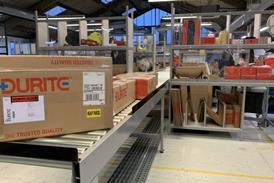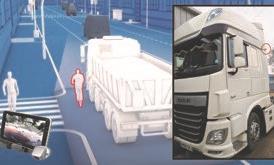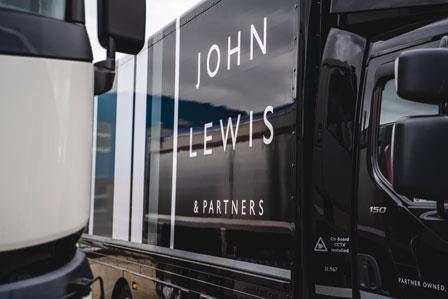
Total Vehicle Solutions Group has rebranded as TVS Interfleet, as the CV bodybuilder positions itself to offer greener products to the transport industry.
It has also launched a bespoke bodywork division called Purpose Bodies, which will build lightweight ambient vehicle products.
TVS has collaborated with OEMs to develop lightweight e-tippers and e-mixers, including the UK’s first electric mixer created in collaboration with Renault, and it said the rebrand would help it continue this work.
Its existing brands Priden Engineering, McPhee Mixers, SB Components and Wilcox all remain part of TVS Interfleet’s stable, along with Purpose Bodies.
TVS has five factories at its largest manufacturing site in Wisbech plus four Wilcox factories in Market Deeping and the McPhee mixer plant in Glasgow. Priden remains the leading supplier of pneumatic discharge equipment for animal feed bulk vehicles.
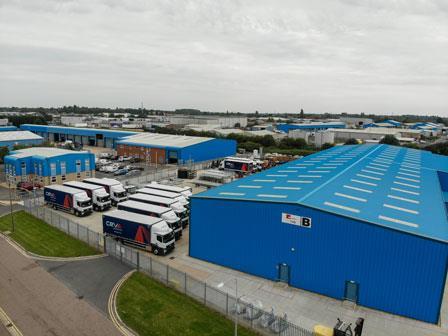
TVS Interfleet’s rebrand also includes Motion, its brand to deliver aftersales service and parts, and the Edge brand which will lead the development of innovative new products.
It has been owned for the past seven years by private equity firm Elaghmore which was set up in 2016 to acquire small to medium-sized UK industrial companies across multiple sectors. It acquired Wilcox in 2021 and its stated aim is to help regenerate UK manufacturing rather than turn a quick profit for investors.
TVS commercial director Phil Ashton spent many years at rental firm Ryder and says he worked with SB Components for over 20 years. “But very few people know we build bodies,” he says. “I was at a conference the other day and the fleet engineer at a large 3PL leant over and said ‘I didn’t know you were a body builder’.”
While McPhee and Wilcox are well known for their cement mixers and tippers respectively, the group is less recognised as a builder of a range of dry ambient vehicle bodies – but it is the preferred supplier to John Lewis & Partners for its home delivery vehicles and is working with the retailer on the next generation of lightweight bodies for its electric vehicle fleet.
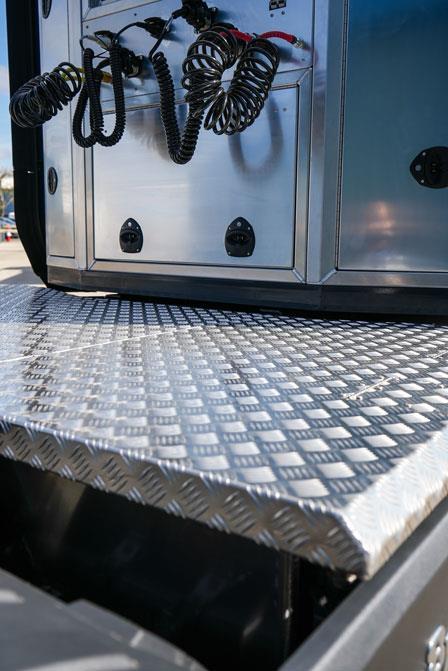
A walk around the Wisbech site highlights the huge variety of bodies, fuel tanks, catwalks, exhausts, suzie mounts, lockers, doors, toolboxes and dropsides it manufactures from sheet steel and aluminium for customers as disparate as Openreach, local authorities, utilities and owner drivers. It is said that every commercial vehicle is a prototype as everyone wants something slightly different and nowhere is that more true than at TVS.
Its new division Purpose Bodies has been created to design and build alloy tippers up to 3.5 tonnes plus a range of dry box, curtainsider, crane-equipped and dropside bodies for all weight categories.
TVS is the sole UK agent for Italian mixer manufacturer CIFA and including these sales it is the market leader in the mixer market with a 69% share. Priden and Wilcox together account for 30% of the tipper market while the group supplied 12% of the commercial bodies sold in the UK in 2021, up from 7% in 2020.
The group has ambitious plans for growth under its relatively new senior management team which has a useful mixture of experienced transport hands in Ashton and technical director Kevin Walker blended with ex-aerospace people including chairman and chief executive Craig Harris.
Capacity is however being constrained by erratic deliveries of the new vehicle chassis on which TVS works its bodybuilding magic.
“Chassis deliveries are all over the place,” says Ashton. “If they are late we can’t always create a new slot for them as we can’t afford to have our people stood around. Tail lifts are also in short supply.”
While people often talk about EVs as the future Ashton says “they are here now”. TVS is already building bodies on Renault and Tevva electric chassis and with blue chip names like Tesco, DPD, Tarmac, Evri, Hanson, Cemex and Travis Perkins among its customer list it is certain to be at the vanguard of the drive to zero emissions. Walker hopes that electrification will lead to more standardisation of vehicle body design, helping to keep manufacturing cost down.
As well as developing lightweight ambient bodies to squeeze every drop of payload from the new wave of electric vehicles, TVS has partnered with Renault Trucks and Scottish Enterprise to develop an innovative McPhee electric cement mixer that has just begun trials with Tarmac.
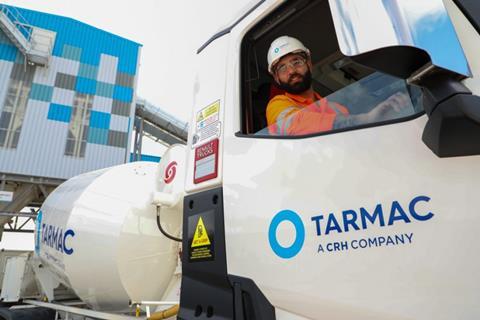
This is part of a development process that is also testing a hydraulic tipper body on a Volvo 8x4 chassis and is intended to produce an electric tipper body by mid-2023.
The McPhee e-mixer is different from the existing CIFA product in that it is powered by the vehicle batteries rather than having its own, heavier self-contained battery pack.
“A battery electric vehicle has to work as well as a diesel,” says Walker. “Our 6 cu m drum on the Renault 6x2 EV will give the same payload as a diesel.”
Discussions about sacrificing range to achieve payload parity begin with the normal response when talking about EVs – “it depends”.
“We need to forget what we know and start again,” argues Walker. “We are using a data logger and vehicle management system to monitor the vehicle to see if it is really doing what we say it will do. These are expensive pieces of kit so they must do what they say.”
Walker points out that while battery electric vehicles aren’t cheap, availability from some manufacturers is actually better now than for diesel chassis.
Even before the government ban on the sales of new fossil-fuelled trucks starts in 2035, Ashton says that major clients will be specifying zero-carbon vehicles on their projects. He cites the planned Lower Thames Crossing, a new tunnel under the river east of London to ease congestion on the existing Dartford Crossing. National Highways says it will be “a pathfinder project that is exploring ways to build the new road with a carbon neutral footprint” which Ashton interprets as meaning only battery electric or hydrogen trucks will be allowed on site.
TVS Interfleet lives by its strapline: “The chassis drives the body, but the body drives the business.”
Innovation in safety as well as environment
As part of its project to develop an electric mixer, TVS has developed Interlecs, a software system designed to help cut some of the 40 mixer roll overs that happen each year.
These usually happen when a full load of cement is at the top of the drum while the vehicle is cornering, something the software can detect and prevent.
Now it has been proven, there is no reason this could not be used on diesel powered mixers too, says Ashton.

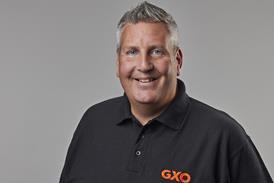
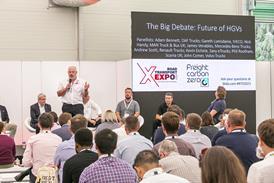
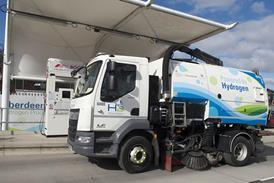


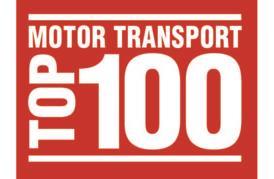


![Mercedes-Benz_eActros_600_(1)[1]](jpg/17820_mercedesbenz_eactros_600_11_978080.jpg)

